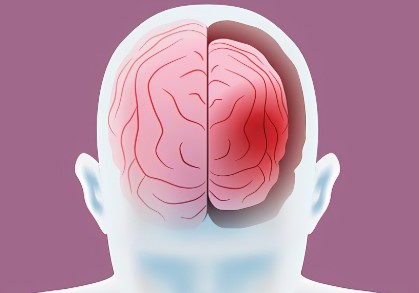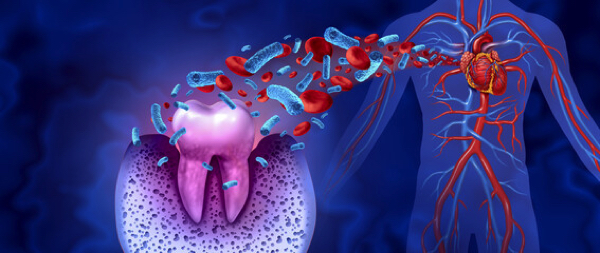Poor heart health in midlife linked to greater dementia risk, study finds
11/09/2025 / By Patrick Lewis

- Poor heart health in midlife, particularly in people in their 50s, is linked to a significantly higher risk of developing dementia later in life, with early warning signs detectable up to 25 years before diagnosis.
- Troponin levels, a marker of heart muscle damage, were found to be consistently higher in those who went on to develop dementia, even in people without known heart disease or symptoms.
- Participants with the highest troponin levels had a 38 percent greater likelihood of developing dementia and showed signs of smaller hippocampal volume—a brain region vital for memory—in later years.
- Experts emphasize prevention, saying that controlling blood pressure, cholesterol and lifestyle factors such as smoking, diet and exercise during middle age could protect both heart and brain health.
- Dementia, especially Alzheimer’s disease, continues to rise globally and remains the U.K.’s biggest killer, affecting nearly one million people and showing steep increases in cases over recent decades.
Having poor heart health in your 50s could dramatically increase the risk of developing dementia later in life, new research has suggested. Scientists have long warned that cardiovascular risk factors such as high blood pressure and cholesterol not only harm the heart but can also damage the tiny blood vessels that supply the brain. Now, British researchers have found that middle-aged adults with signs of heart muscle damage are more than one-third more likely to develop dementia, with biological warning signs detectable up to 25 years before diagnosis.
The study, funded by the British Heart Foundation and led by experts at University College London (UCL), examined levels of a protein called troponin—a marker released into the blood when heart muscle is damaged. While doctors typically check for high troponin levels in patients suspected of having a heart attack, even slightly elevated levels may indicate ongoing, undetected heart injury.
Researchers analyzed the health data of nearly 6,000 civil servants who were aged between 45 and 69 when they were first tested for troponin levels. None had heart disease or dementia at the time. Over the following 25 years, participants underwent regular memory and thinking tests. During this period, 695 people developed dementia. Comparing their results with those who remained healthy, scientists found that people with dementia had consistently higher troponin levels—often detectable decades before symptoms appeared.
Those with the highest troponin levels at the start of the study were 38 percent more likely to develop dementia than those with the lowest. MRI scans also showed that participants with elevated troponin tended to have a smaller hippocampus—the part of the brain responsible for memory—around 15 years later. Writing in the European Heart Journal, the researchers said that raised troponin levels were linked to faster cognitive decline over time.
Heart and brain health are inseparable
Professor Eric Brunner, emeritus professor of epidemiology and health at UCL and co-author of the study, explained: “Damage to the brain seen in people with dementia accumulates slowly over the decades before symptoms develop. Control of risk factors common to both heart disease, stroke and dementia in middle age—such as high blood pressure—may slow or even stop the development of dementia as well as cardiovascular disease.” He added that early findings suggest troponin could eventually become a key component of a risk score to predict dementia risk in later life.
Professor Bryan Williams, chief scientific and medical officer at the British Heart Foundation, said the research highlights the vital connection between heart and brain health. “This study is an important reminder that our heart and brain health are inseparable,” he said. “Middle age is a particularly sensitive time, with damage at this stage setting up a trajectory of decline in both heart and brain function. Our advice is simple—keep your heart healthy by controlling blood pressure, managing cholesterol, staying active, maintaining a healthy weight and not smoking.”
Alzheimer’s disease, the most common form of dementia, affects an estimated 982,000 people in the United Kingdom. Symptoms such as memory loss, language difficulties and impaired reasoning typically worsen over time. Dementia remains the country’s biggest killer, with Alzheimer’s Research UK reporting 74,261 deaths in 2022—up from 69,178 the previous year. Globally, the number of new dementia cases has surged by around 148 percent since 1990, while total cases have risen by 161 percent, according to data published in Frontiers.
“To help prevent dementia, engage in regular physical exercise, maintain a nutrient-dense diet rich in antioxidants and omega-3 fatty acids and prioritize mental stimulation through continuous learning and social interaction,” said BrightU.AI‘s Enoch.
Watch this video to learn more about the benefits of Tai Chi for mental health and cognition.
This video is from the Daily Videos channel on Brighteon.com.
Sources include:
Submit a correction >>
Tagged Under:
Alzheimer's, Alzheimer's disease, dementia, Diets, disease prevention, exercise, heart disease, longevity, memory loss, natural health, prevention, research, risk, Study, welfare
This article may contain statements that reflect the opinion of the author
RECENT NEWS & ARTICLES
COPYRIGHT © 2017 ALZHEIMERS NEWS




















